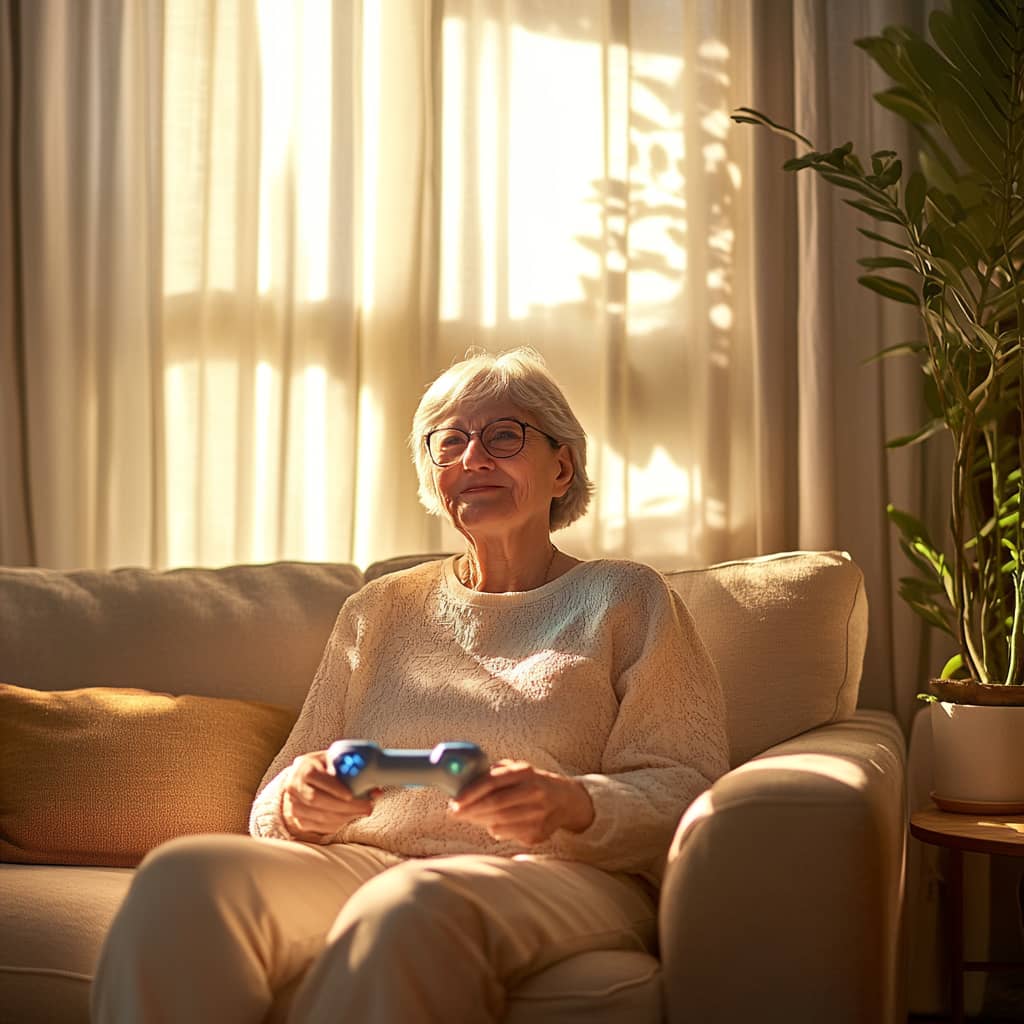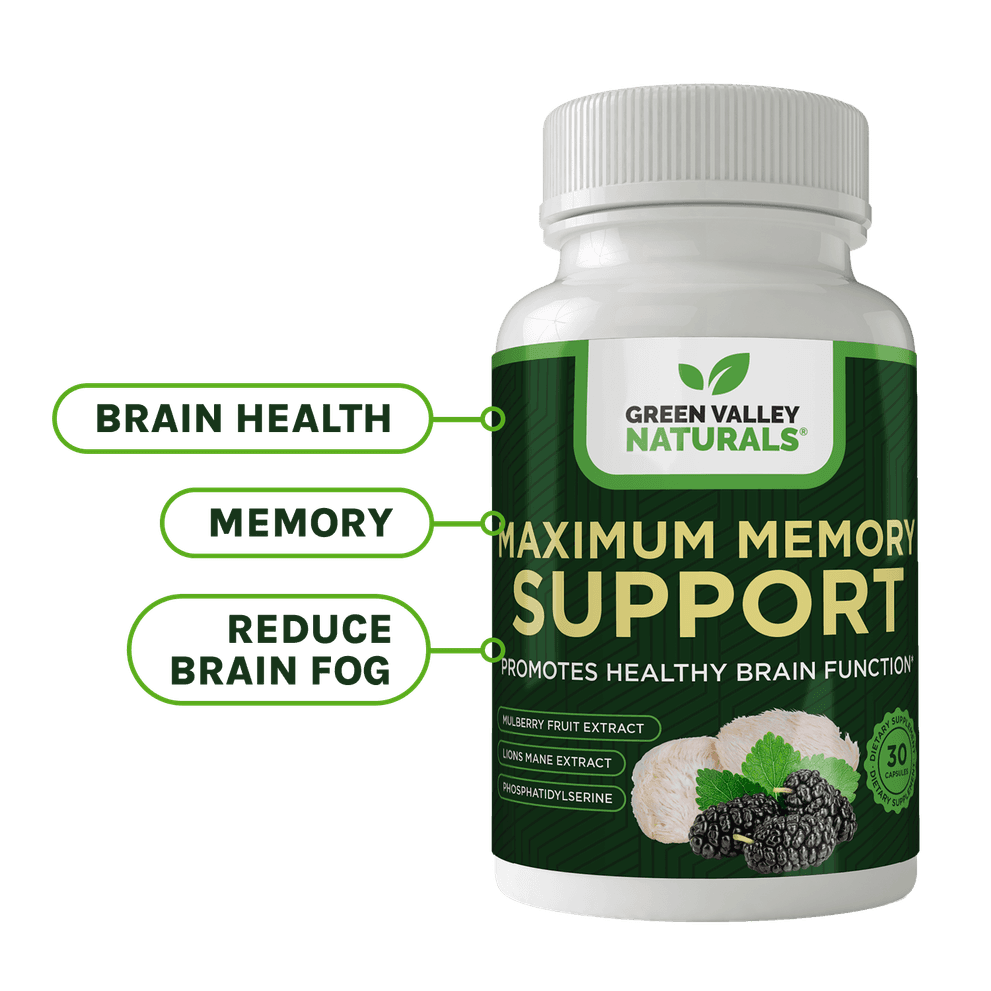
What if the secret to a younger, sharper brain is in a game console? While exercise has long been hailed as the gold standard for brain health, a new study points to another surprising way to sharpen memory. Researchers discovered that certain popular video games may actually reverse cognitive aging by more than a decade—far outpacing the brain benefits of physical activity. The results shocked even the neuroscientists behind the study.1 Could your next brain-boosting routine involve a controller instead of a treadmill?
Key Takeaways
- Gaming Boosts Brain Age: Gamers performed cognitively like people up to 13.7 years younger than non-gamers.
- Exercise Improves Mood: Physical activity enhanced mental health but had no significant impact on cognitive function.
- Combining Both Is Best: Researchers recommend pairing physical movement with cognitive stimulation—like video games—for optimal brain health.
Why Gamers May Have Sharper Minds Than Joggers
Get physically active and you’ll support your brain health. We’ve written about that a lot and it’s true. But as we’ve also reported, you can sit in a chair and still give your brain a workout by meditating, reading, solving puzzles or playing video games.
So, what’s best, exercise or one of these other activities?
A new study compared exercise and video games to find out which activity benefits the brain the most. The research team's surprise was the answer.
Keeping active is essential. Whether you choose to walk, climb stairs, play ping pong, engage in intense bursts of vigorous activity, or settle for getting those pesky household chores out of the way, any of these activities supports brain health because they all move the body.
Physical activity can be accompanied by more relaxing methods, such as brain training. There are many games aimed at training different aspects of cognition, such as Double Decision and Ebb and Flow. Video games such as NeuroRacer and Project Evo have also shown great potential to sharpen the minds of seniors.
However, lingering questions remain as to how exercise and video games enhance or protect against age-related decline. Would researchers at Western University, Ontario, Canada, be able to clear the fog?3
Exercise Improves Brain Health But Won’t Make You Smarter
The researchers recruited 927 men and women between the ages of 47 and 65 for an online study. They gathered information on their educational level, employment status, country of residence, pre-existing health conditions, levels of physical activity, and hours spent playing video games over the previous 12 months.
The participants also completed several online tests to assess a broad range of cognitive abilities. Then they were screened for symptoms of anxiety, depression, apathy, and low mood.
The results show that exercise and video gaming have different effects on the brain. Physical activity wasn’t linked to any measure of cognition, but did improve mental health, whereas playing video games improved cognitive abilities but had no effect on mental health.
The findings in more detail showed:
- Exercise: Participants who met or exceeded the World Health Organization (WHO) guidelines of 150 minutes of physical activity each week were 12% more likely to report having no symptoms of depression and 9% more likely to have no symptoms of anxiety. Those who didn’t meet the guidelines were twice as likely to suffer from depression and 1.5 times more likely to have an anxiety disorder.
- Video games: Compared to non-gamers, gamers performed better in memory, attention, and reasoning skills. Those playing a single type of game five or more hours a week performed cognitively like people 13.7 years younger. Those playing a variety of games less than five hours a week performed like people 5.2 years younger.
The Changing World of Video Games
“[T]he sorts of games that frequent gamers play nowadays are really quite different from consumer brain training games. Typically, they are highly engaging, strategic, and may enhance visual attention, processing speed, and problem-solving abilities through intense repetition and practice.”
He added that these intense games release neurotransmitters like dopamine which may have long-term effects on cognitive function.
“As for exercise not affecting cognition,” he continued, “that was also a surprise, however we only looked at the long-term effects of regular exercise, so it may well be that a short burst of vigorous exercise does affect cognition.”
Whether there’s a causal link between exercise and cognition or not, there’s little doubt that exercise releases endorphins, neurotransmitters, and hormones that lift mood, lower fogginess, and buffer stress. It also up-regulates the brain’s “growth hormone,” brain-derived neurotrophic factor (BDNF), increases blood flow to the brain, reduces brain inflammation, and improves sleep quality. All these factors improve overall mental health.
Previous studies suggest video games benefit cognition by increasing gray matter volume in the hippocampus, a critical memory area; enhancing the function of the prefrontal cortex, which is involved in higher-order cognitive processes; releasing dopamine; and improving visual attention and processing speed.2
Our Takeaway
Professor Owen and his colleagues concluded that the brain would benefit from combining physical and cognitive interventions.
So, keep up with exercising, and for those who want to try their hand at video games, the ones used by participants included puzzle games like Minecraft and Hearthstone, role-playing games like Grand Theft Auto and Assassin’s Creed, and sports games such as Need for Speed and Rocket League.
Summary
A major study from Western University compared the cognitive effects of physical exercise and video gaming in adults aged 47 to 65. While exercise improved mental health by reducing depression and anxiety, it didn’t enhance cognitive performance. In contrast, playing video games significantly improved memory, reasoning, and attention skills, especially for five or more hours per week. Participants performed cognitively like people 13 years younger. The findings challenge long-held beliefs about brain health and suggest combining physical activity and video gaming may offer the best cognitive protection as we age.
Frequently Asked Questions
Do video games actually make you smarter?
Yes, certain types of video games—especially strategic and action-based games like Minecraft and Assassin’s Creed—can improve cognitive functions such as memory, attention, and reasoning. In the study, regular gamers performed like people 13.7 years younger.
Does exercise help brain health at all?
Absolutely. While this particular study found that exercise didn’t boost cognition directly, it did improve mental health significantly—reducing symptoms of anxiety and depression. Exercise also supports brain function through better sleep, reduced inflammation, and increased blood flow.
Can I replace exercise with video games to improve my brain?
No—both serve different purposes. Video games help sharpen cognitive abilities, while exercise improves mental well-being and physiological brain health. A combination of both offers the most benefit.
What types of video games are best for brain performance?
Games that are strategic, immersive, and involve problem-solving or rapid decision-making tend to offer the most benefit. Examples include Minecraft, Grand Theft Auto, Rocket League, and Hearthstone.
How much gaming is needed to see results?
The study showed that playing a single type of game for 5+ hours a week was linked to the most cognitive improvement. Even those who played a variety of games less than 5 hours per week saw noticeable gains.
- 1 Western News: Western-led study shows playing video games may improve cognitive performance, October 17, 2024
- 2 Hindustan Times: Are video games unfairly antagonised? Study claims they are more brain-friendly than physical exercise, October 18, 2024
- 3 Owen AM, et al. Characterizing the Cognitive and Mental Health Benefits of Exercise and Video Game Playing: The Brain and Body Study, PsyArXiv, October 18, 2024

